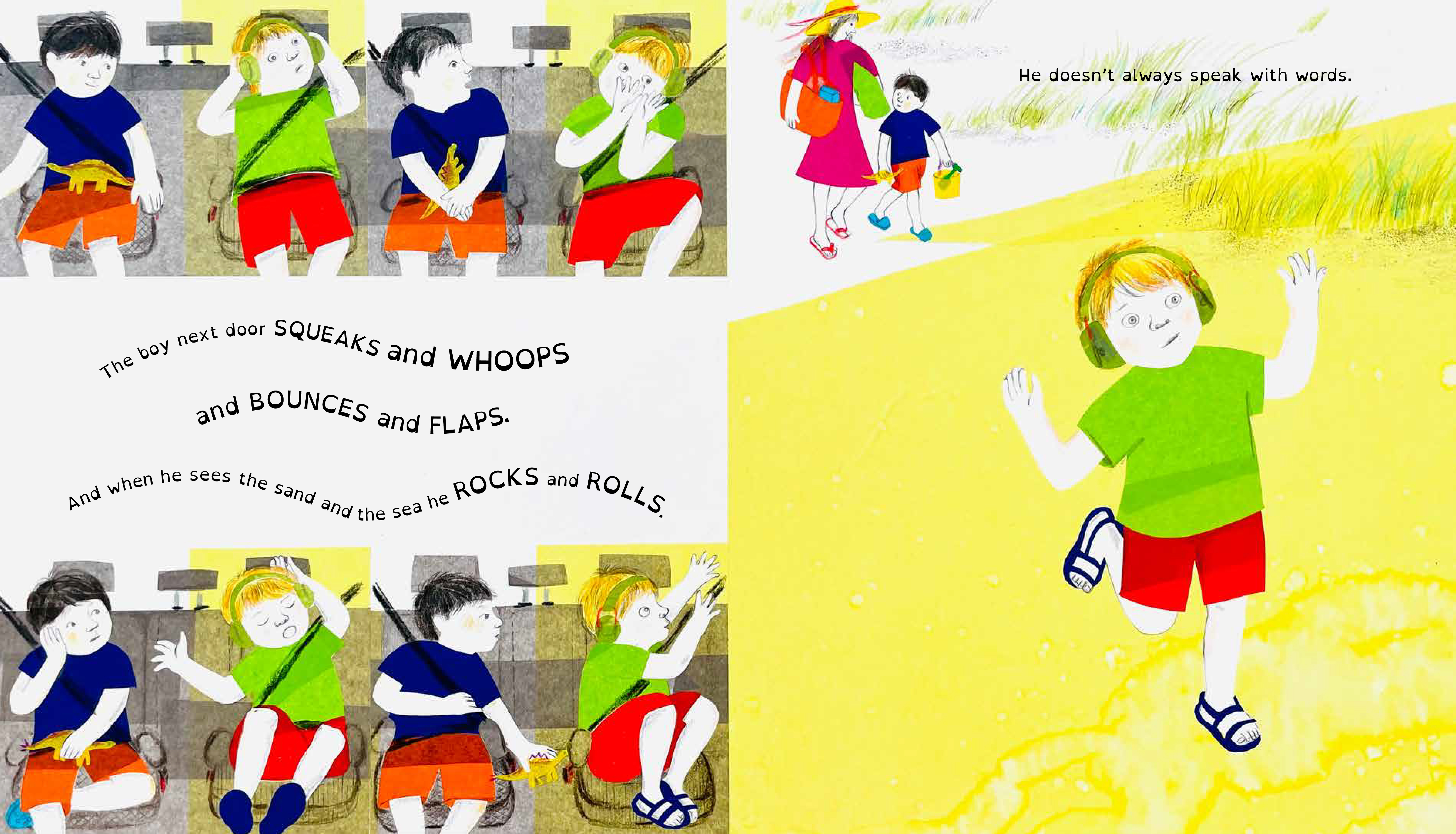Fiona Carswell is the mother of two boys, one autistic and the other neurotypical. She flies the flag for Autism Awareness Week each year, giving readers a glimpse into a world they may know very little about, and which can be as hilarious as it is challenging.
I got a call the other day from my nearly-8-year-old on his smartwatch as he played in the park round the corner with his 10-year-old brother.
Cue a rustle, some minor commotion, and my elder son comes through loud and clear, “Mum, I’m a boy.”
This verbal routine is just one of many that my elder son, who is autistic, relies upon in moments of anxiety. The likelihood is that something seemingly minor rattled him in the park – maybe a bee buzzed past him, or a dog barked in the distance, perhaps somebody he didn’t know walked by and made eye contact, or a toddler cried for an unknown reason in a buggy. Whatever the trigger, he needed, in that moment, to calm his nervous system, and these verbal scripts are one of the means he has.
Little brother knows all this. Little brother – who is neurotypical – gets it.
It's often said that if you’re unsure how to act around a disabled person then you should look at how their siblings behave around them. In our house – in our lives – this could not be more apt, and the particular rhythm of the relationship my boys have has been noticed time and time again by friends and family, even if it’s become second nature to us.
To say that my younger child treats his elder brother just like any other kid would be inaccurate: in fact, it would be to do him a disservice. My elder boy needs different things from those around him, and for his particular vulnerabilities, communication difficulties and sensory differences to be understood and respected, every minute of every day, if he is to stay regulated, calm and able to function.
You have to live with those needs to understand the toll it all takes: you also have to live with those needs for them to become so engrained that they seem as necessary to family life – and as natural -- as water and sleep.
But sibling life in our house – as in any other household – is not a one-way festival of compassion. Younger brother developed an eye roll at an astonishingly young age, and it serves him well as a tension diffuser – and a way of connecting with us, as parents – in difficult moments with his brother. He will happily switch off the toilet light while his big brother’s in there, or do some creative accounting with tooth fairy funds to the detriment of my elder son who doesn’t have a materialistic bone in his body.
Equally, my youngest is not immune from the weight of it all when things go wrong, and finds it indescribably awful when his brother is struggling and family life is put on hold while the meltdown subsides.
But it was this sibling relationship – this unique, often-beautiful rhythm of our lives, and those of others we know with neurodivergent families – that inspired my debut book for children, The Boy Who Loves to Lick the Wind.
The boys in the story are not brothers: they are friends who discover each other during a trip to the beach. But, like the sibling relationship I know so intimately, the burgeoning friendship is not without its questions, frustrations and confusions. Instead, it is precisely because all those elements are allowed to sit comfortably alongside acceptance, understanding and kindness, that the relationship feels so real and so vital.
~ Fiona Carswell.
Fiona's debut book, The Boy Who Loves to Lick the Wind, illustrated by Yu Rong, is published by Otter Barry Books. Download an extract and find out why our expert reviewer awarded this a Star Book.
World Autism Acceptance Week runs from 2-8 April 2024 and includes Autism Awareness Day 2 April.
You can find more books, fiction and non-fiction, that help children to understand autism, inspire empathy and raise awareness - 40 Children's Books about Autism or featuring an Autistic Character to raise awareness this World Autism Acceptance Week.






Comments (0)
Leave A Reply
You must be logged in to post a comment.